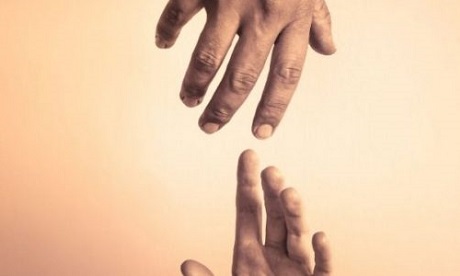October 4, Pope Francis signed his new encyclical, Fratelli Tutti during a visit to Assisi.
The encyclical calls for a new kind of politics and emphasises social friendship as a way to build a more just and peaceful world.
It encourages the contribution of all people and institutions and seeks to build a global movement of fraternity.
In many cases the encyclical is a condensation of the issues Francis has tacked during his pontificate.
The document covers a range of topics, for example, from digital culture, migrants, economics, war and nuclear weapons, the death penalty, religious freedom, peace, forgiveness, the markeplace, Christian charity, love, trafficking, racism, unemployment, excessive profits, culture walls and the role of christians in politics.
Among many of the topics Francis traverses, he observes that currently humanity seems to be the midst of a worrying regression and is intensely polarized.
He says people are talking and debating without listening, and global society seems to have devolved into a “permanent state of disagreement and confrontation.”
In some countries, leaders are using a “strategy of ridicule” and relentless criticism, spreading despair as a way to “dominate and gain control,” Francis observes.
Although beginning to write the encyclical before the outbreak of COVID-19, Francis argues the world’s response to the crisis shows the depth of humanity’s mistrust and fractures.
In this light, Francis says that Christians have a key role in political life and despite all the difficulties should not bow out of political engagement.
Christians, he said, must act at a local level to build relationships of trust and assistance and support politicians and political platforms that promote the common good.
“Whereas individuals can help others in need when they join together in initiating social processes of fraternity and justice for all, they enter the ‘field of charity at its most vast, namely political charity,’” he said.
Getting practical, Pope Francis explained that “if someone helps an elderly person cross a river, that is a fine act of charity. The politician, on the other hand, builds a bridge, and that too is an act of charity” but on a larger scale.
Focussing on one of society’s most visible items of mistrust, Francis dwells on the fractious issue of immigration, saying that unnecessary migration needs to be avoided by creating concrete opportunities to live with dignity in the countries of origin. But at the same time, humanity needs to respect the right to seek a better life elsewhere.
Focussing on receiving countries, Francis says there needs to be a right balance between the protection of citizens’ rights and the guarantee of welcome and assistance for migrants.
Saving harsh words for politicians who have “fomented and exploited” fear over immigration, Francis observes a healthy culture is a welcoming culture, one that does not have to renounce itself.
The pope observes that despite all our hyper-connectivity, we are witnesses to a global fragmentation making it difficult to resolve problems that affect us all.
The encyclical also offers some developments to Catholic social teaching, including on war where he writes that due to nuclear chemical and biological weapons that strike many innocent civilians, today we can no longer think, as in the past, of the possibility of a “just war”, but we must vehemently reaffirm: “Never again war!”
The pope also expands another area of Catholic social teaching; the death penalty.
Francis says that not even a murderer loses their personal dignity and the death penalty must be abolished worldwide.
Sources
